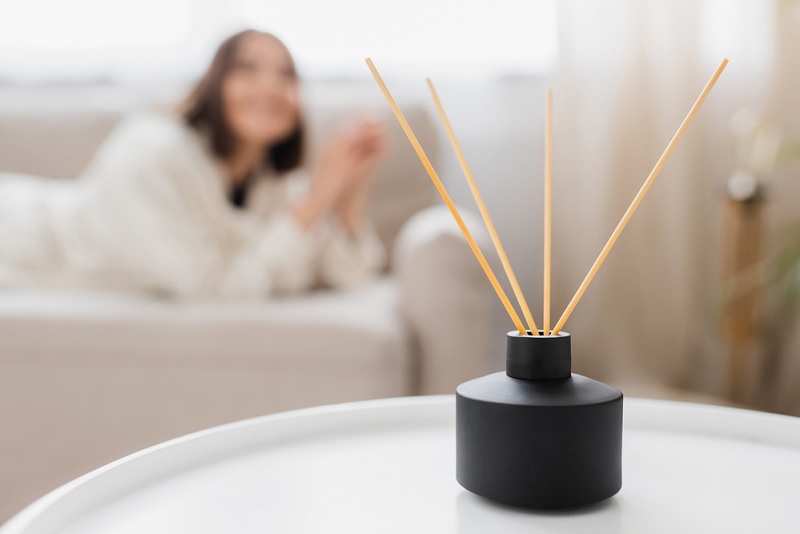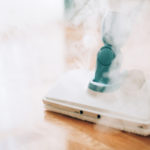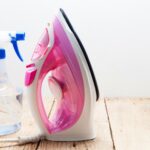It’s not nice to come home to a nasty smell in your home, or have company over and see their noses twitching!
Thankfully, there are some really great ways to keep your house smelling beautiful all the time, from the hallway to your kitchen.
From establishing thorough cleaning routines to the use of scented products and natural remedies, here are twelve effective methods to make your house smell good.
1. Keep Your House Clean
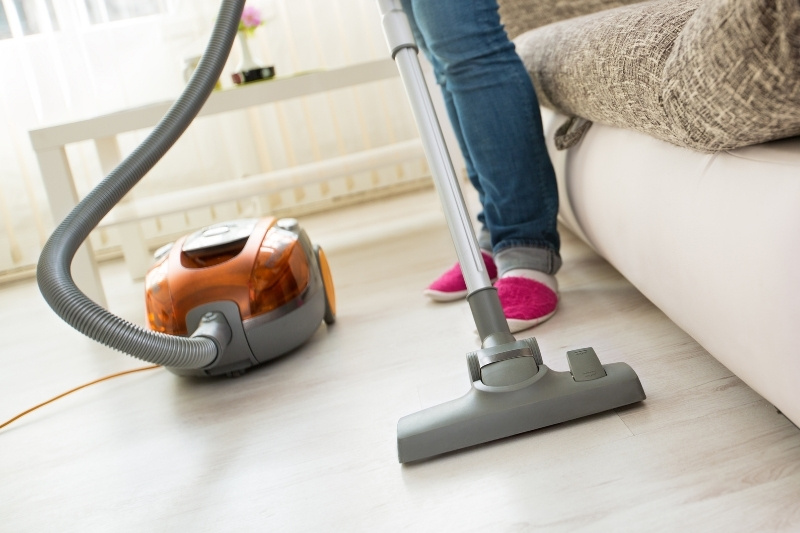
Keeping your house clean is the foundation for a fresh-smelling home. Keeping on top of cleaning will prevent odours from developing.
Pay special attention to things like rubbish bins, which can quickly start to spread unpleasant smells in your home if they aren’t emptied and cleaned regularly.
Rugs and carpets are also common offenders that might need deep cleaning if they have started to smell.
Try to establish a cleaning schedule you can stick to that includes regular vacuuming of carpets, rugs, and upholstered furniture.
It’s worth getting a vacuum cleaner with a HEPA filter, as this will be more effective at removing dust, pet hair and other allergens that can contribute to odours.
If you have hard floors, sweep and mop them regularly to remove dirt and debris that can trap odours.
Don’t forget about your bedding and linens. Wash them frequently to remove body odours and sweat that can accumulate over time.
If you dry your laundry indoors, make sure you do it in a well-ventilated place, otherwise this could lead to dampness and musty odours.
Regularly decluttering will also help freshen up your house, as old unused items can start to smell or simply prevent air from flowing around your home.
Regularly sort through your belongings, and donate or throw away things you don’t need and want anymore.
2. Eliminate Pet Smells
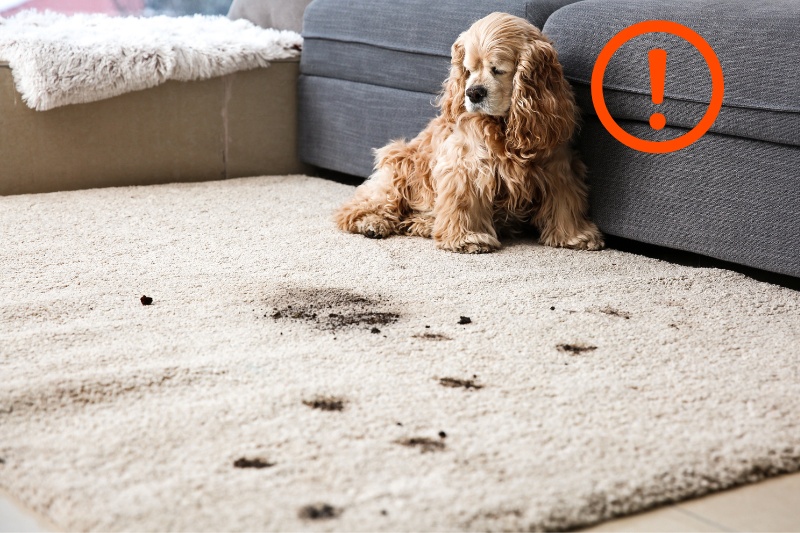
If you have furry friends at home, addressing pet-related odours is essential for maintaining a pleasant-smelling environment.
Regular grooming and bathing of your pets are crucial to minimise pet odours. Use pet-specific shampoos and conditioners that are designed to neutralise smells and leave a pleasant scent.
Pay attention to your pets’ bedding and other areas where they spend a lot of time. Wash their bedding regularly and consider using odour-neutralising sprays designed for pet odours.
If you have dogs or cats, you will need to vacuum more often than other people in order to remove pet hairs, which can give off unpleasant smells.
You could also consider investing in a pet air purifier to help eliminate airborne pet allergens and odours. These purifiers typically have special filters to trap particles and neutralise odours.
3. Simmer Pot
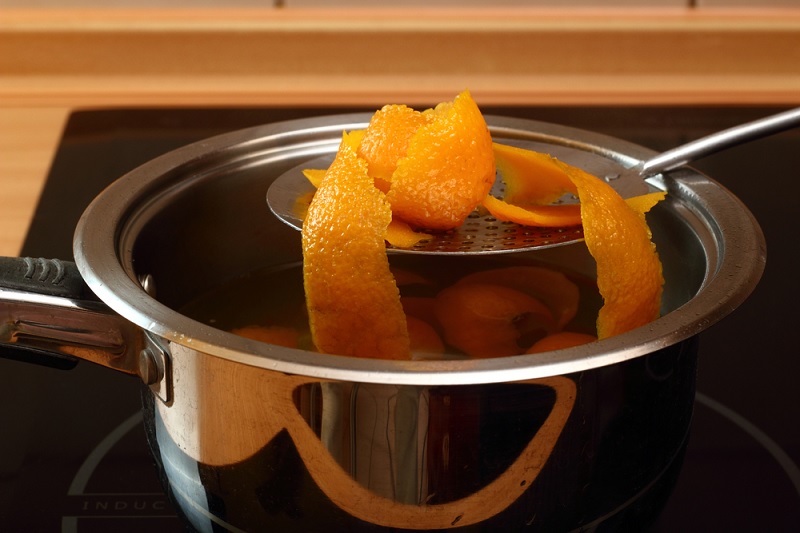
A simmer pot is a great natural method to spread a lovely scent around your home. This simple technique involves filling a pot with water and adding a combination of fragrant ingredients.
Some popular choices include cinnamon sticks, citrus peels, cloves, fresh herbs like rosemary or thyme, or even vanilla extract.
Place the pot on the stove and allow the mixture to simmer on low heat. As the water evaporates, it releases a pleasant aroma that wafts through your home.
Try experimenting with different combinations of ingredients to find scents that you love.
4. Scented Candles and Incense
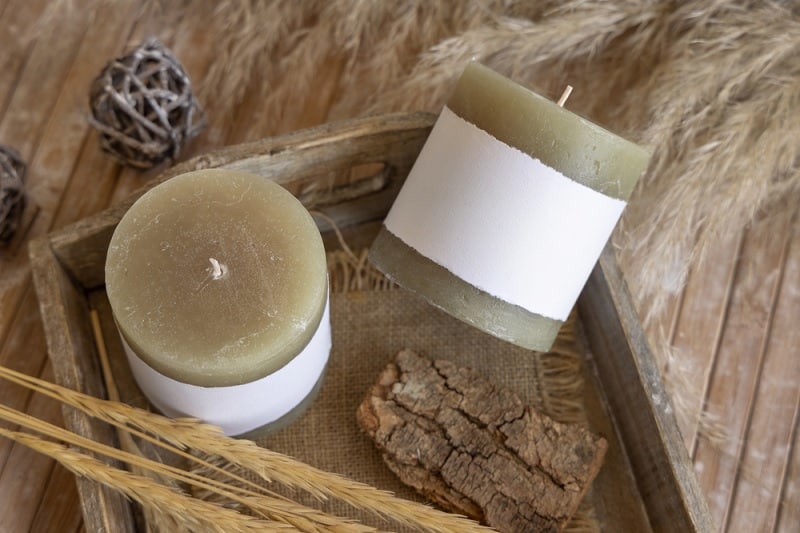
Scented candles and incense can create an inviting and pleasant-smelling home.
When choosing scented candles, look for high-quality ones made from natural waxes like soy or beeswax, as they tend to emit a cleaner scent compared to paraffin-based candles.
Choose scents that you like. It could be the soothing aroma of lavender, the warm and cozy scent of vanilla, or the refreshing notes of citrus.
Light the candles in different rooms or designated areas to spread the fragrance evenly throughout your home.
Incense sticks or cones can be used in a similar way to a touch of tranquillity and a captivating scent to your space.
Explore various fragrances such as sandalwood, jasmine, or patchouli to find the ones that you like.
Prioritise safety when using candles and incense. Place them on stable surfaces away from flammable materials, and never leave them unattended.
5. Air Fresheners
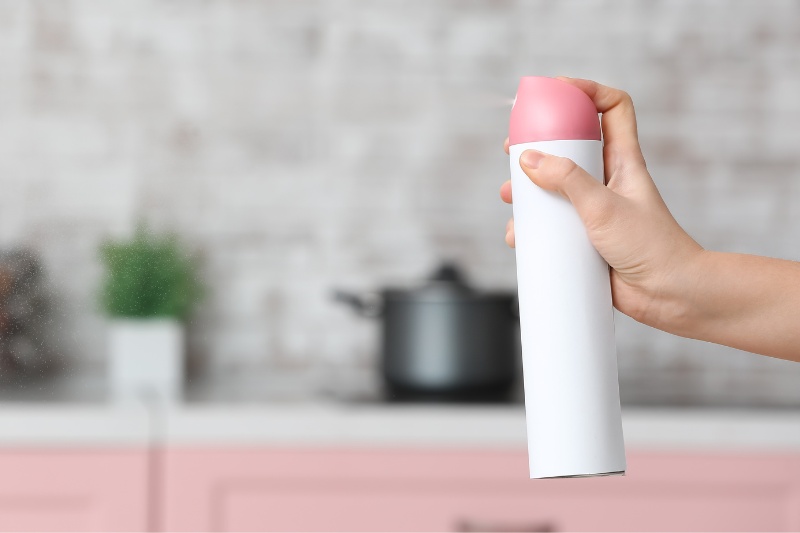
A lot of people don’t like to resort to room sprays and air fresheners since they aren’t very natural, but they are sometimes the quickest option.
When you can neutralise a smell and replace it with a tropical scent (or whatever your preference) within seconds, it’s no wonder we all keep one on hand for a quick refresh when an unexpected guest pops around.
They come in various forms such as sprays, plug-ins, or automatic dispensers. Choose a type and scent that suits you, and will be able to neutralise odours without being overwhelming.
If you’re worried about the chemicals in air fresheners, try looking for air fresheners with natural or botanical-based fragrances.
Alternatively, you could create your own DIY air freshener by combining essential oils with water in a spray bottle. This allows you to customize the scent and control the intensity according to your preferences.
Be careful not to overuse air fresheners, as they can create an overpowering fragrance or trigger allergies and sensitivities in some people.
6. Plants and Flowers
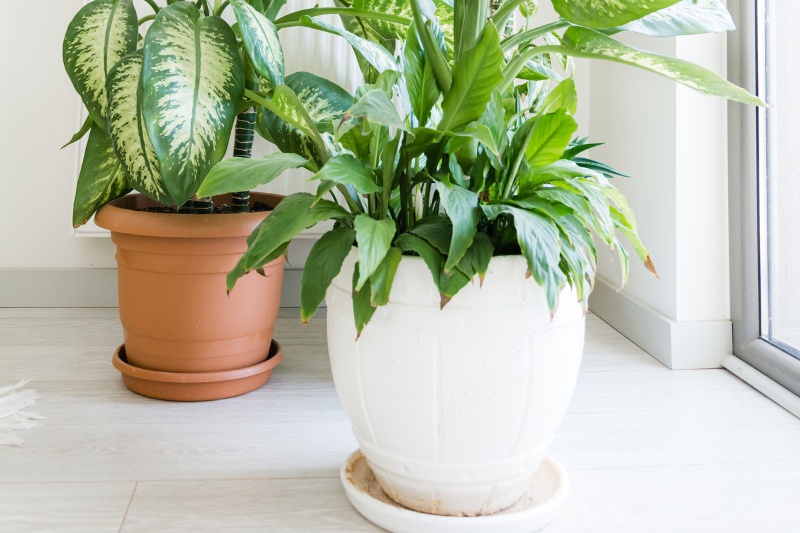
As well as looking nice, plants and flowers can contribute to a pleasant aroma in your home.
Plants like lavender, jasmine, eucalyptus, and rosemary in particular give off nice smells, making them good choices as houseplants.
Place potted plants strategically throughout your home, especially in areas where odours tend to linger, such as the kitchen or bathroom.
You can also create small herb gardens in your kitchen with fresh herbs like basil, mint, or thyme. They’ll help freshen the air after you’ve been cooking, and you can use them to add flavour to your food too!
Fresh flowers can also be an excellent way to add a fragrant touch to your living spaces, though the scent can be overpowering and trigger allergies. Choose flowers with strong scents, such as roses, lilies, or hyacinths, and display them in vases throughout your home.
Remember to care for your plants and flowers properly, as neglect can lead to unpleasant smells. Water them regularly, provide adequate sunlight, and remove any dead or decaying foliage to maintain a fresh and healthy environment.
7. Remove Old Food
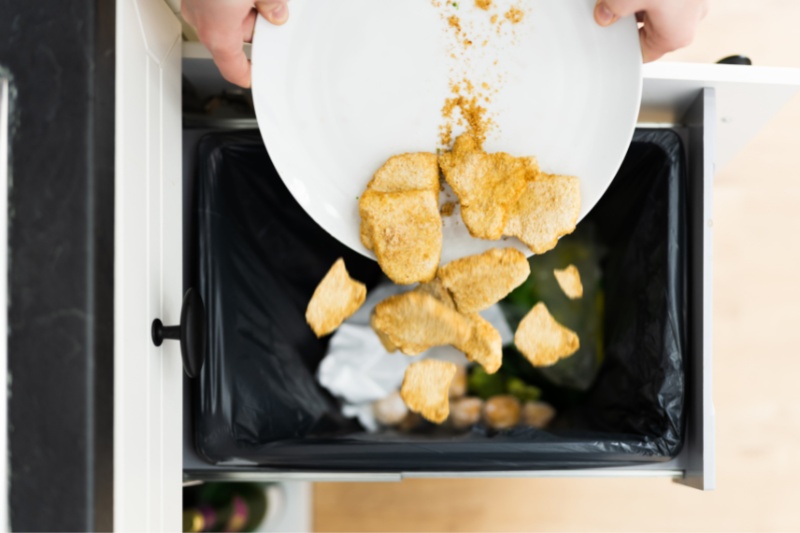
Lingering food odours can quickly make your house smell less than desirable. It’s important to regularly clean your refrigerator and pantry, removing any expired or spoiled items.
Check the freshness of your fruits and vegetables, as overripe produce can emit strong odours.
When cooking, make sure you clean cooking utensils, hobs and ovens immediately after use. Either store leftover food in an airtight container in the fridge or throw it away.
Lingering food particles and grease can accumulate and generate unpleasant smells. Wipe down surfaces with a solution of vinegar and water or use mild cleaning agents to ensure thorough removal of any residue.
It’s also important to empty rubbish bins regularly and clean them with a disinfectant to prevent unpleasant smells from filling the kitchen. Consider using scented bin liners or bags.
8. Open the Windows
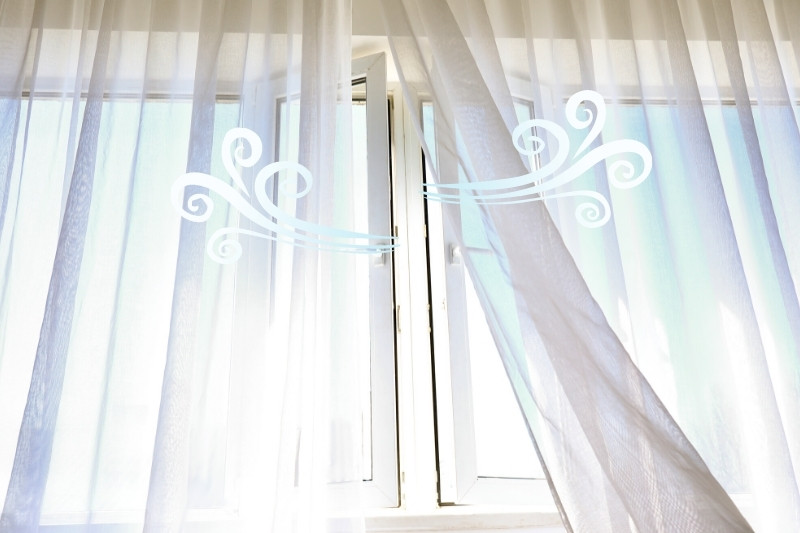
One of the simplest and easiest ways to rid your house of any existing smells is to air it out. All you need to do is open a few windows and let the fresh air work its magic.
A house with no airflow can often become a bit musty and start to smell old, so having a couple of windows open, even just a crack, will help to keep your home fresh.
It’s not always possible given the British climate, but when you can, open windows and doors, especially after cooking, cleaning, or when the weather permits. This will help ventilate your space and replace stagnant air with a refreshing breeze.
Create a cross-ventilation effect by opening windows on opposite sides of your home. This encourages air to flow through, carrying out any lingering odours. You can also use fans to facilitate air movement and expedite the freshening process.
Opening windows not only helps improve the scent of your home but also provides numerous health benefits, such as reducing indoor pollutants and enhancing overall air quality.
It might surprise you to learn that indoor air is on average 3.5 times more polluted than outdoor air
Due to the accumulation of pollution from things like gas ovens, building materials and furniture that release pollutants, cleaning and personal care products, mould, and a host of other sources.
Just be mindful of noise levels, security concerns, and outdoor allergens when deciding how long and how often to keep your windows open.
9. Essential Oils
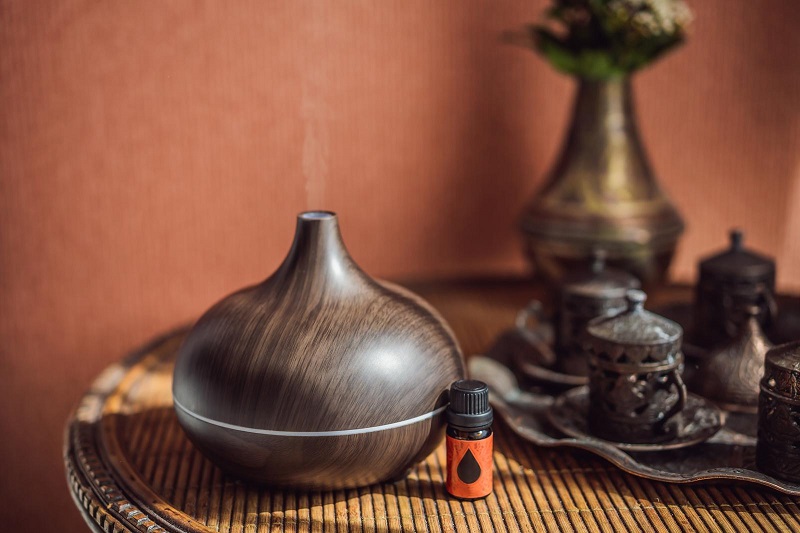
Essential oils offer a natural and customisable way to freshen your home with enchanting scents.
These highly concentrated plant extracts can be diffused using an essential oil diffuser or mixed with water to create homemade air fresheners or linen sprays.
Different essential oils have different fragrances and purported therapeutic benefits. For example, lavender is said to be relaxing, while lemon is thought of as invigorating and uplifting.
To freshen the air, add a few drops of your chosen essential oil to a diffuser filled with water. The diffuser will disperse a fine mist that carries the fragrance throughout the room.
Diffusers are a great use of oil, as no heat is needed. However, you have to place them somewhere they won’t be knocked over!
Alternatively, mix essential oils with water in a spray bottle and mist the mixture into the air or onto fabrics, such as curtains or cushions, to create a refreshing scent.
Potpourri can be a good alternative to essential oils, as it will fill a room with a natural, floral scent.
10. Baking and Cooking
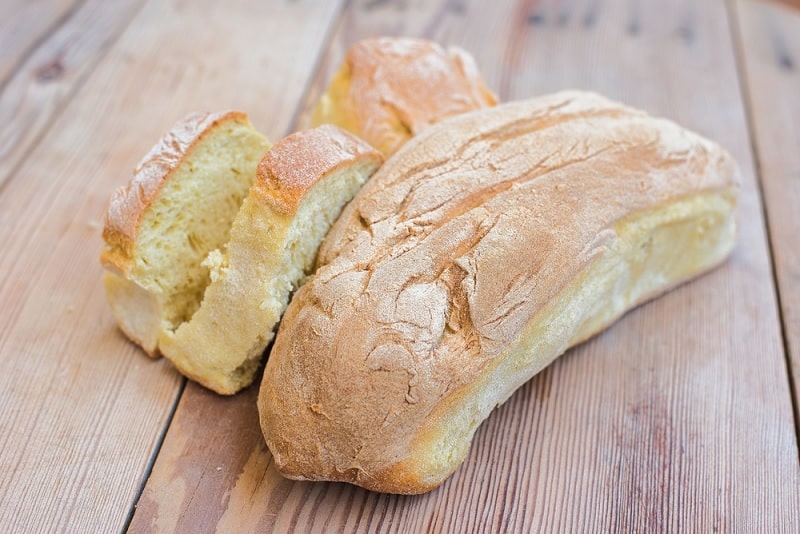
The delightful aromas that emerge from your kitchen during baking or cooking can fill your home with mouthwatering scents. Take advantage of this by preparing dishes with ingredients known for their fragrant qualities.
Use spices like cinnamon, nutmeg, or cardamom when baking desserts, or infuse your kitchen with the aroma of freshly baked bread.
Cooking with herbs like basil, thyme, or rosemary releases enticing scents that can transform your home into a culinary haven.
Consider experimenting with stovetop potpourri by simmering a combination of herbs, spices, and citrus peels in a pot of water.
As the mixture gently simmers, it will release delightful fragrances that permeate your home.
11. Air Purifier
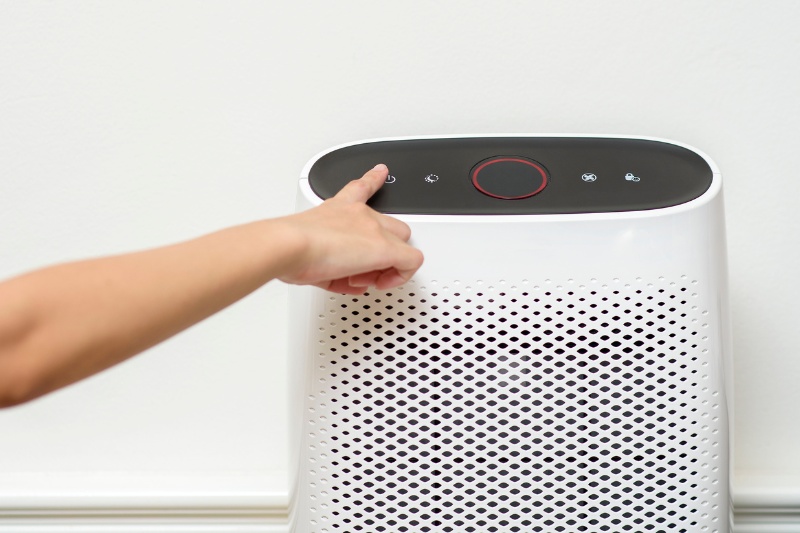
An air purifier can play a significant role in maintaining a fresh and odour-free home environment.
These devices are designed to remove airborne particles, allergens, and pollutants, including those that contribute to unpleasant smells.
When choosing an air purifier, look for one with a built-in activated carbon filter. This type of filter is effective in capturing and neutralizing odours, such as cooking smells, pet odours, or tobacco smoke.
Consider the size of your space and select an air purifier with appropriate coverage to ensure efficient air filtration.
Regularly clean and replace the filters in your air purifier according to the manufacturer’s instructions.
This will help maintain its effectiveness in removing odours and maintaining good indoor air quality.
12. Linen Sprays
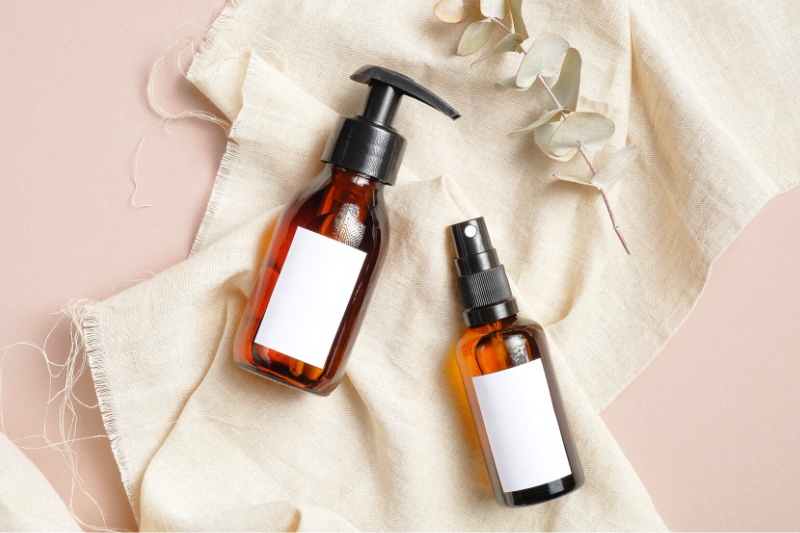
Linen sprays are a simple yet effective way to infuse your fabrics with a pleasant scent. These sprays can be used on a variety of items, including bed linens, curtains, upholstery, and even clothing.
To make your own linen spray, combine water with a few drops of your preferred essential oil or a fragrance oil of your choice.
Shake the mixture well before each use and lightly mist it onto your fabrics. Allow them to air dry, and enjoy the refreshed scent that lingers.
Alternatively, you can find commercial linen sprays available in various scents. Choose a fragrance that appeals to you and use it to freshen up your fabrics regularly.
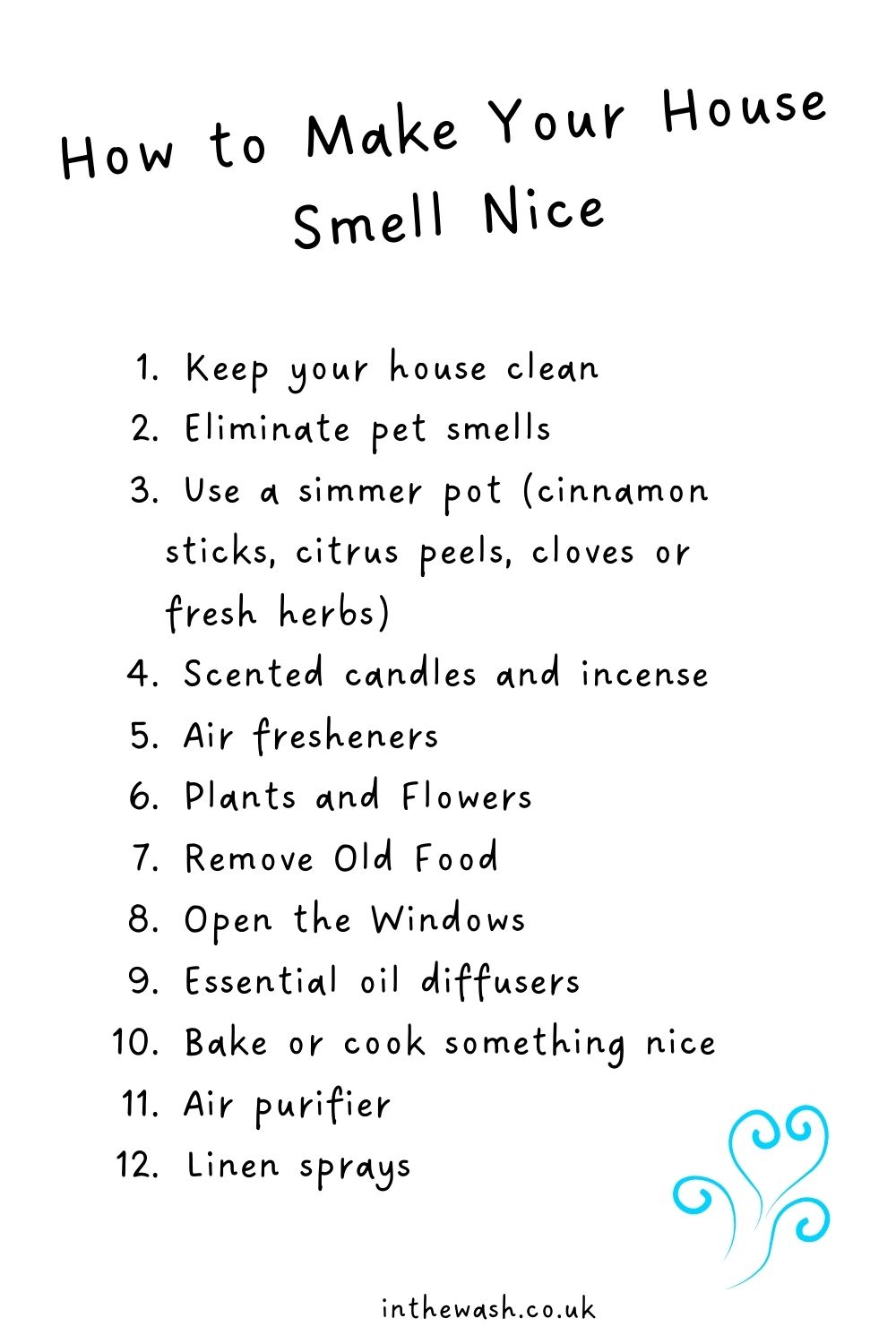

In The Wash is your guide to the best laundry and cleaning products, tips and tricks. Our mission is to solve the UK’s cleaning and laundry dilemmas!
